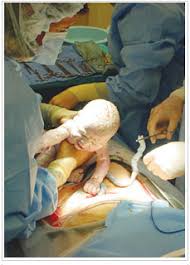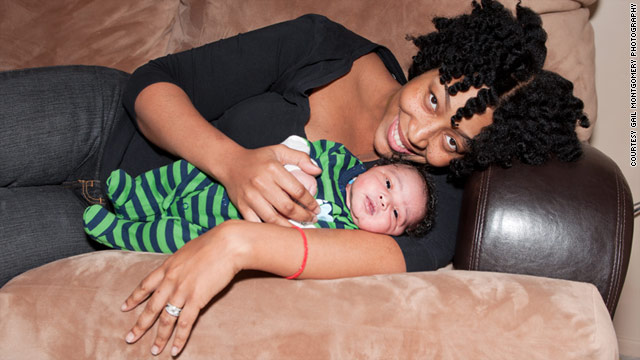January 11th, 2011 by Linda Burke-Galloway, M.D. in Better Health Network, Health Tips
No Comments »

 Although I’ve been a proponent for the prevention of medical errors for years and wrote a book to address those issues, I think my obstetrician-gynecologist (OB/GYN) colleagues are finally catching on.
Although I’ve been a proponent for the prevention of medical errors for years and wrote a book to address those issues, I think my obstetrician-gynecologist (OB/GYN) colleagues are finally catching on.
Dr. Patrick Duff of the University of Florida’s OB/GYN department wrote an article in the December issue of the journal Obstetrics & Gynecology that caught my attention. In his article, “A Simple Checklist for Preventing Major Complications Associated with Cesarean Delivery,” Duff outlines steps that OB/GYNs should take in order to reduce complications during and after a cesarean section. Duff patterns his list after Dr. Atul Gawande’s book, “The Checklist Manifesto: How to Get it Right,” which has set the standard regarding reducing complications after surgery. According to Duff, the following steps should be taken in order to reduce complications after a cesarean section:
1. Clip hair at the surgical site just before making the incision to reduce wound infections. Duff states that there is a greater chance of promoting infections when the hair is shaved the night before the procedure. He also recommends clipping hair as opposed to shaving which reduces the rate of would infections.
2. Cleanse skin with chlorhexidine solution rather than iodine because medical studies have demonstrated a reduction in infections using chlorhexidine solution.
3. Give broad spectrum antibiotics before the surgical incision as opposed to after the newborn’s umbilical cord is clamped. Read more »
*This blog post was originally published at Dr. Linda Burke-Galloway*
December 21st, 2010 by Michael Sevilla, M.D. in News, Opinion
No Comments »

 Every once I awhile a story catches my eye as I scan the news websites. There was one this morning on CNN with this catchy title: “Mom Defies Doctor, Has Baby Her Way.” The article describes a story where a mother was going to have her fourth baby. Her previous three were born via C-section. Mom did not want another C-section done, and “defied” her doctor’s order for the procedure. “You’re being irresponsible,” the patient was told.
Every once I awhile a story catches my eye as I scan the news websites. There was one this morning on CNN with this catchy title: “Mom Defies Doctor, Has Baby Her Way.” The article describes a story where a mother was going to have her fourth baby. Her previous three were born via C-section. Mom did not want another C-section done, and “defied” her doctor’s order for the procedure. “You’re being irresponsible,” the patient was told.
The middle of the article talks about the current thinking and statement of the American College of Obstetrics and Gynecology saying that “it’s reasonable to consider allowing women who’ve had two C-sections to try to have a vaginal delivery.” Of course, there’s risks with proceeding with a vaginal delivery and risks of another C-section.
What’s always interesting to me are the comments following the article. I applaud the physicians who are fighting back the anti-physician sentiment and those who are pushing (no pun intended) the only home birth agenda.
In the article, this person is being held up as a hero — as someone who defied the paternalistic medical establishment and did it her way. Good for her — or is it? What if that 0.4-0.9 percent possibility of severe complication occurred and there was a problem with mom and/or the baby? What would happen then? Read more »
*This blog post was originally published at Doctor Anonymous*
November 18th, 2010 by Linda Burke-Galloway, M.D. in Better Health Network, Health Tips, Research, True Stories
2 Comments »


As more older women attempt to beat the biological clock and conceive, they are at greater risk for developing birth-related complications. For women over 45, there is less than a 1 percent chance of getting pregnant using their own eggs. Successful pregnancy for women over 45 is nearly always the result of in-vitro fertilization (IVF) and the use of an egg donor.
Researchers at Tel Aviv University reviewed birth records from 2000 to 2008, specifically looking at the records of 177 women who gave birth at the age of 45 and beyond. The majority of the women had IVF and received donor eggs, and 80 percent of the babies were delivered via cesarean section (C-section).
Despite their celebrity, Kelly Presley (age 47), Celine Dion (age 42), and Mariah Carey (age 40), are older pregnant women who are at risk. The premature birth of Celine Dion’s twin sons did not surprise me at all. Women over 35, and especially those over 45 with underlying medical problems, should be treated prior to becoming pregnant. I cannot emphasize this enough. Read more »
*This blog post was originally published at Dr. Linda Burke-Galloway*
Although I’ve been a proponent for the prevention of medical errors for years and wrote a book to address those issues, I think my obstetrician-gynecologist (OB/GYN) colleagues are finally catching on.




 Every once I awhile a story catches my eye as I scan the news websites. There was one this morning on CNN with this catchy title: “
Every once I awhile a story catches my eye as I scan the news websites. There was one this morning on CNN with this catchy title: “








